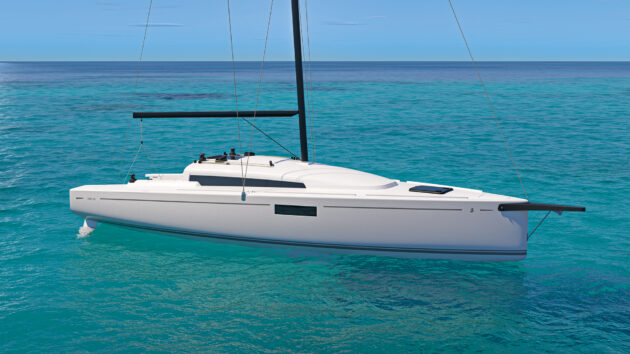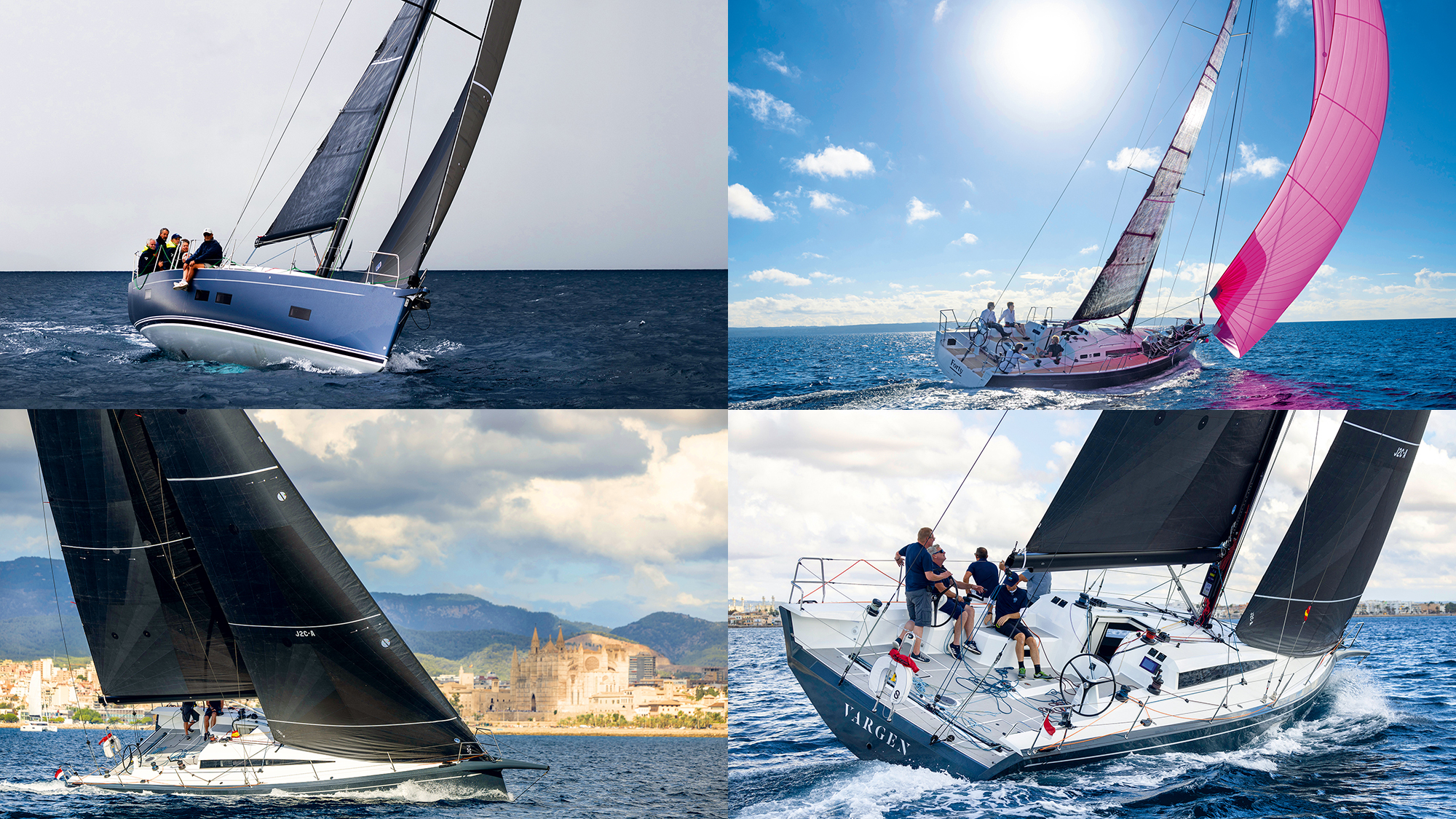Beneteau has been making a variant of the First 30 for many, many years. But this new versions marks a significant change
The First 30 was Beneteau’s first sailing yacht when it launched in 1977 and it has since built nearly 3,000 in its various guises. So this is a special model for the yard, which always heralds a big splash (remember the pink one designed by Juan K and Michel Desjoyeaux, which launched in 2010?). But this latest incarnation marks a step change for the yard.
With less and less demand for racing or cruiser-racers, Beneteau is increasingly looking at the fast, fun cruising sector: “We feel the new sailing category is planing cruising,” announced Yann Masselot, chief sales officer of sail, at the Cannes Yachting Festival. Beneteau wants to get beginners comfortable with planing sailing. And crucial to this is keeping it to an accessible, entry-level price of €100,000.
Such a proposition is precisely why it bought Slovenian sportsboat specialist Seascape in 2018. I later met up with Seascape’s founder Andraz Mihelin, a visionary ex-Mini sailor who now has 140 employees working under him.
“Racer-cruisers are dying out,” believes Mihelin, while planing cruising boats are an exciting category. The key is keeping them simple to sail so that an average sailor can get planing easily and enjoyably, he continues.

Large forward cabin and galley modules come from Beneteau’s larger 36 model
So what about the potential performance? Confidence in the First 30’s planing ability comes from the fact that it’s drawn by IMOCA and Class 40 expert Sam Manuard. At 3.1 tonnes, with 60m2 of upwind sail area, it should jump onto the plane in 13-14 knots wind, reckons Mihelin.
Beneteau and Seascape laid the foundations with its First 36 planing design two years ago. Although it came out more expensive than they wished, 95 have sold in that time. The interior of the new 30 uses modules of the 36, including the large forward cabin and galley (albeit with less headroom). With two berths and a single heads, it provides space for a week’s cruising.
Deck layout is deliberately simplified. A backstay is retained and the mainsheet is on an A-frame, German sheeted, to keep the cockpit clear. Floating tacks are used on the coachroof for the jib sheets, while a racing version adds mainsheet traveller and twin tail sheets.
Article continues below…
Beneteau First 36 review: Is this the best First yacht in years?
You might not appreciate it at first glance, but this could well be the best performance production yacht we’ll see…
Best performance yacht 2025: Our pick of the top options
The European Yacht of the Year awards is the most thorough and impartial awards programme – the winners here are…
“The real challenge was price. If we want to bring people back to sailing, we have to cut the price,” says Mihelin. The €100,000 goal has been achieved through “a lot of material optimisation”.
Mihelin continues. “The 36 was built like a race boat. This is built as a production boat including conventional hull liner and bulkheads… but still weighs three tonnes.” A fully cored Vinylester hull and deck results in significant weight savings, while an inner liner with slots for bulkheads helps make it quick to produce. Mihelin also credits Pure Design with really helping cut weight down including with glue and GRP excesses.
And having already taken over 50 down payments before announcing the news publicly, he has confidence in this new direction. “We want people to start dreaming about sailing again – not cruising – sailing again.”
First 30 specifications
LOA: 10.33m 33ft 11in
LWL: 9.35m 30ft 8in
Beam: 2.95m 9ft 8in
Draught: 1.98m 6ft 6in
Displacement: 3,150kg 6,945lb
Ballast: 1,070kg 2,360lb
Price: from €100,000 ex VAT
Contact: beneteau.com
 If you enjoyed this….
If you enjoyed this….
Yachting World is the world’s leading magazine for bluewater cruisers and offshore sailors. Every month we have inspirational adventures and practical features to help you realise your sailing dreams.Build your knowledge with a subscription delivered to your door. See our latest offers and save at least 30% off the cover price.






